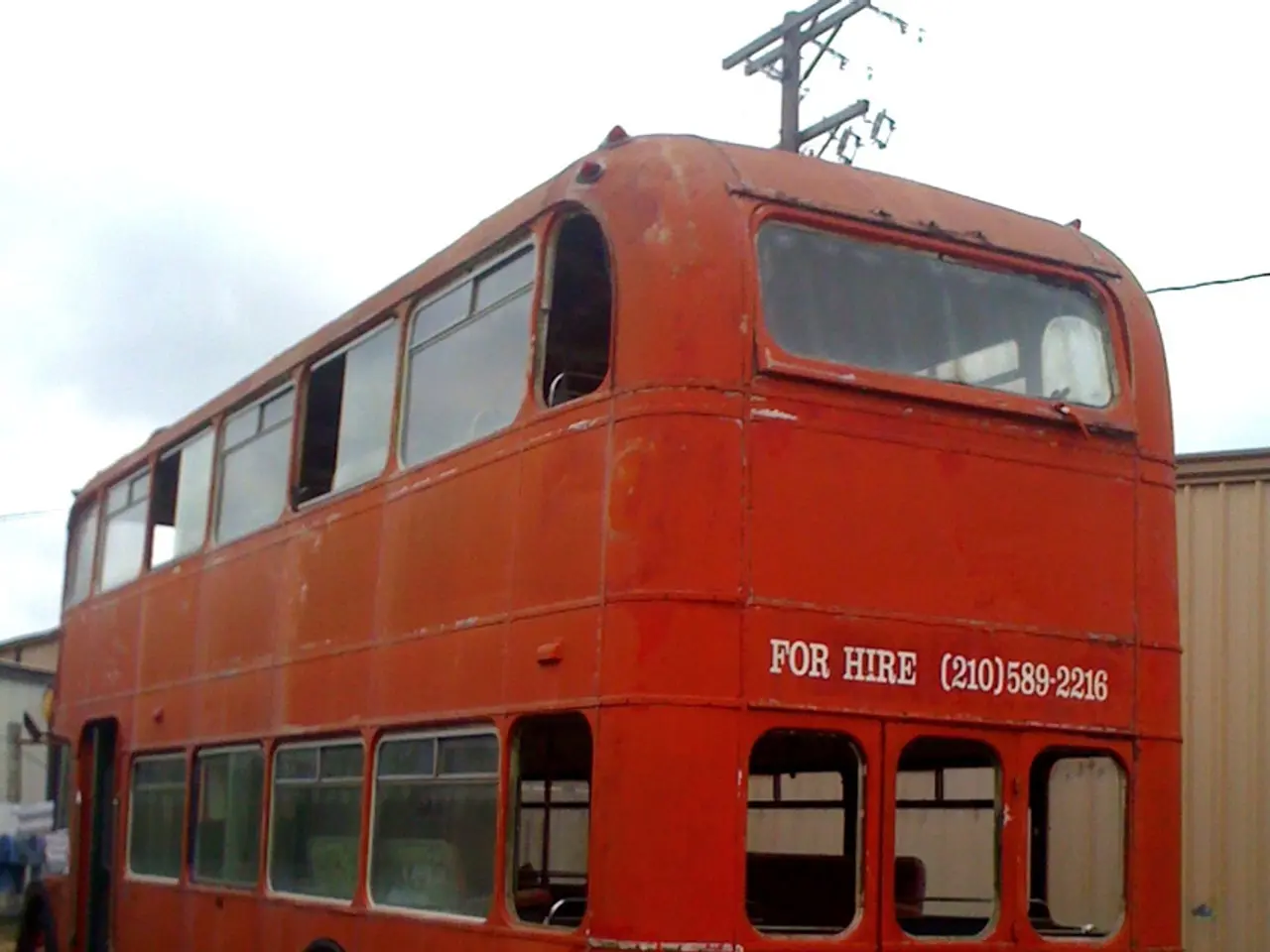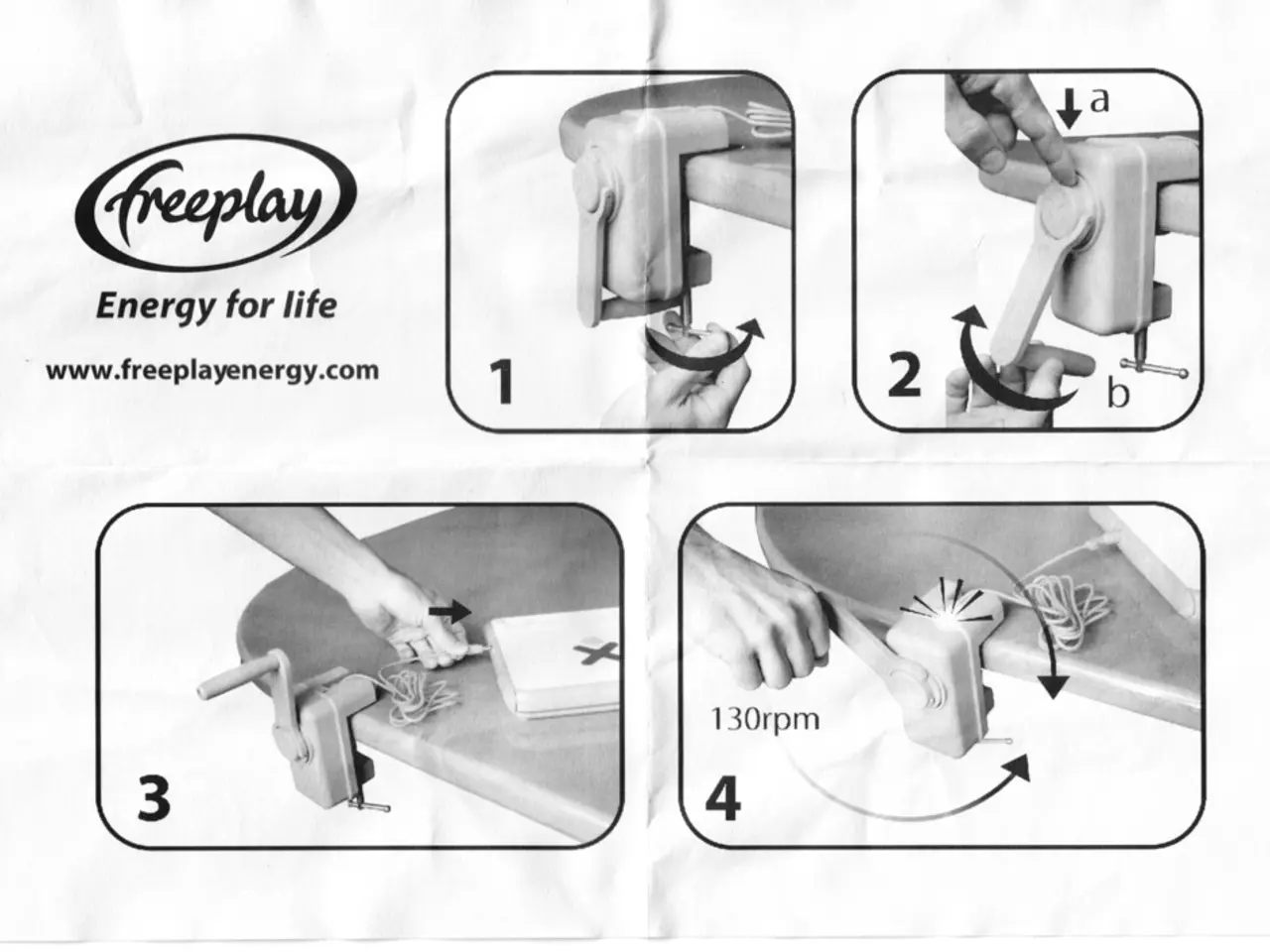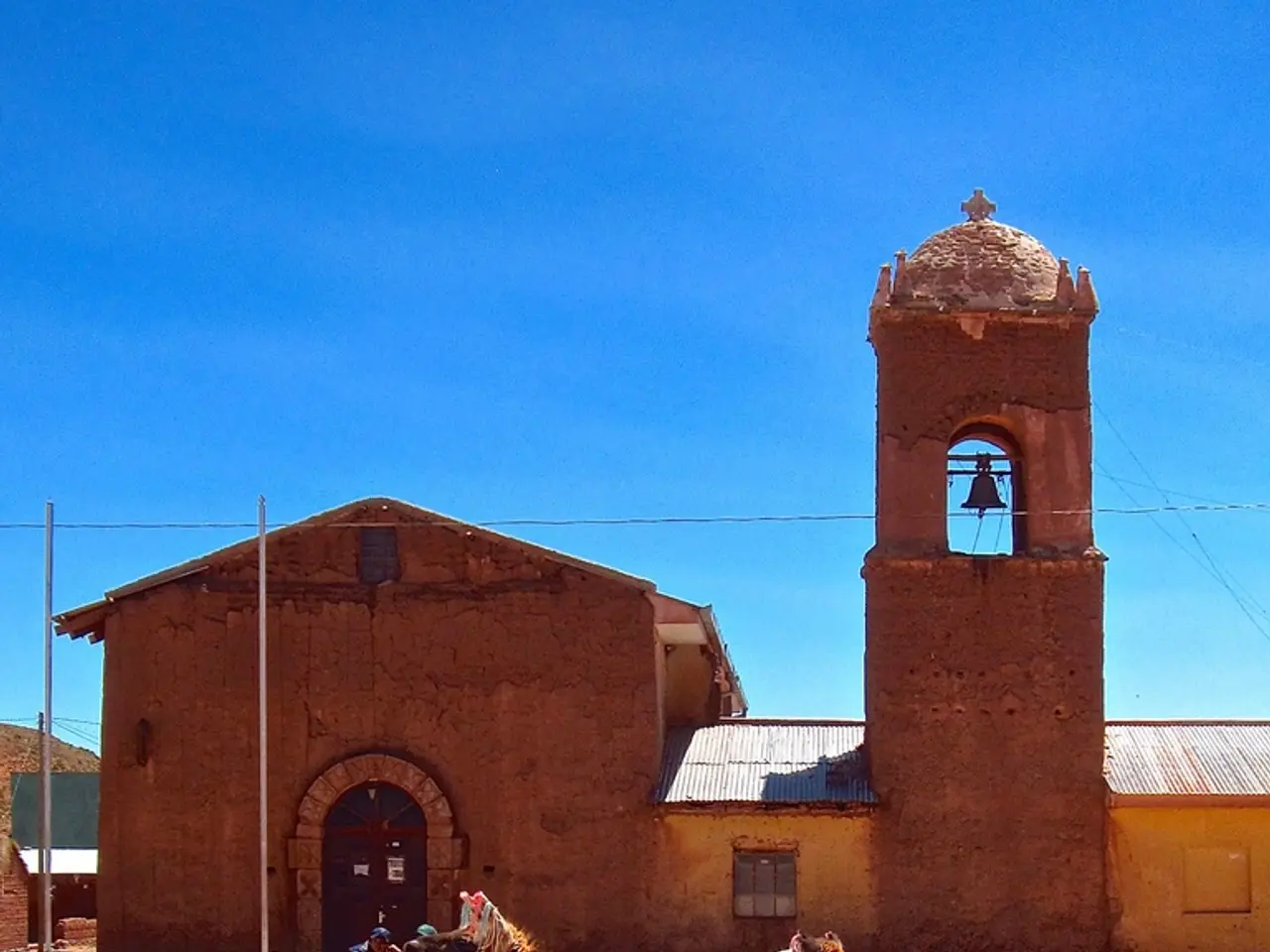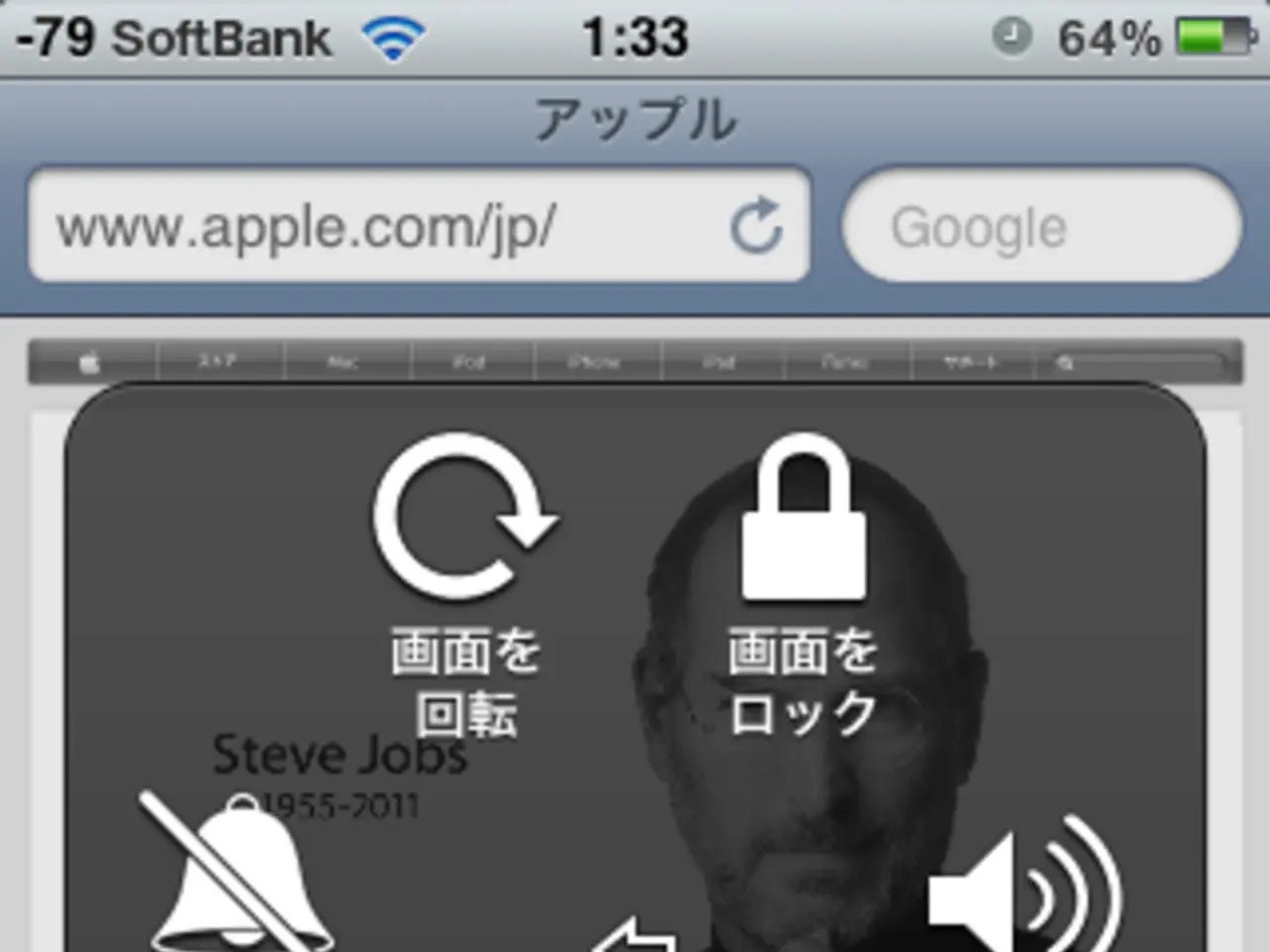Munich's Transit Authority (MVG) Deploys Solar Technology for Initial Solar Bus - Commencing Operations with Solar Bus Trailer
In a groundbreaking development, Sono Group N.V., a leading innovator in solar technology, is accelerating the revolution of mobility by making every vehicle solar. The company's disruptive solar technology, engineered for seamless integration into a variety of vehicle architectures, is now being used in real conditions in Munich, Germany.
The solar bus trailer, developed by Sono Group, includes 20 semi-flexible special photovoltaic (PV) modules that provide over 2,000 watts of power. This innovative technology is designed specifically for use on buses, with electrical integration by means of the power electronics developed by Sono, called the MCU. The solar energy generated is used to operate the HVAC system and to support the trailer steering system, thereby reducing energy consumption and fuel consumption.
The impact of solar bus trailers using Sono Solar Technology on reducing CO2 emissions in Munich can be significant. The solar solution's 'CO2 backpack', i.e., emissions caused in production, amounts to a one-time of approximately 1.5 metric tonnes of CO2 per bus or bus trailer and could be offset after a short runtime of just less than one year. Moreover, the solar bus trailer for the Munich Transport Company (MVG) aims to reduce local CO2 emissions by over 6.5 metric tonnes per year per vehicle.
The technology's scalability and adoption could lead to widespread adoption, further reducing emissions in urban areas like Munich. Sono Group has signed more than ten LOIs and contracts with companies like MAN, easymile, and ARI Motors since the beginning of 2021, highlighting the growing traction of this technology in the industry.
Munich's Vice Mayor, Katrin Habenschaden, attended the presentation and press conference of the solar bus trailer at MVG's west depot in Munich Laim on 31 March 2022. She expressed her support for the solar bus project as a cornerstone in the shift towards climate-friendly mobility, with potential for significant fuel savings and CO2 emissions reduction.
The Sono Solar complete solution includes a customized concept with solar modules, power electronics, telematics and data, mechanical and electrical integration, as well as after-sales and service. The technology is suitable for integration into existing vehicles as well as production-ready development and integration into new vehicles during the production phase.
The solar bus trailer offers fuel savings of up to 2,500 litres of diesel per year. With a CO2 saving potential of up to 2,000 metric tonnes of CO2 per year for a medium-sized fleet of around 300 buses, the impact of this technology on the environment is undeniable.
While the direct impact on CO2 emissions in Munich specifically would depend on the number of vehicles using this technology and the overall fleet size in the city, the potential for significant environmental benefits is clear. As Sono Group continues to participate in significant transportation events like Transport Logistic in Munich, showcasing its technology to key audiences in the commercial transportation sector, the future of solar mobility in Munich and beyond looks promising.
However, it is important to note that the forward-looking statements in this press release involve inherent risks, uncertainties, and contingencies, including the impact of the global COVID-19 pandemic, risks related to the company's limited operating history, unproven ability to develop and produce vehicles, monetization of solar technology, projected financial information, competition, changes in regulatory requirements, and fuel and energy prices.
In alignment with this development, the environmental science community is closely observing the implementation of Sono Group's solar technology in buses, as its potential for reducing CO2 emissions could be substantial in the realm of data-and-cloud-computing and technology-driven environmental solutions. The solar bus trailers, equipped with novel solar PV modules, could significantly contribute to climate-change mitigation efforts, as they demonstrate a strong capability for fuel savings and CO2 reduction.




